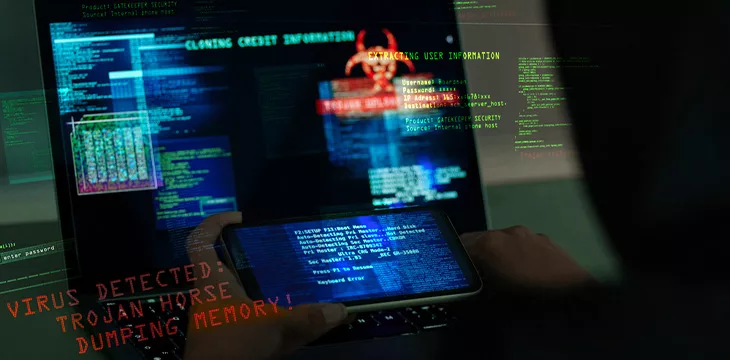|
Getting your Trinity Audio player ready...
|
Easy access to digital currencies is a surefire way to promote the adoption of emerging technologies in the Philippines, but it also contributed to a jump in online attacks as bad actors level with technological developments.
Recent data compiled by cybersecurity firm Kaspersky showed an uptick in phishing attacks targeting digital currency users in the Philippines in 2022, with gaming platforms and “crypto” wallets a hotbed for such an illicit act.
The Philippines posted a total of 24,737 attacks in 2022, up 169.93% from the previous year, making it the second “most attacked” country in Southeast Asia, following Vietnam, which registered over 64,000 phishing cases in the same period.
In 2021, the Philippines reported 9,164 phishing attacks.
Kaspersky Managing Director for Asia Pacific Adrian Hia said criminals behind these attacks use sophisticated methods to lure unsuspecting victims, including sending links to emails and short messaging platforms that take users to a fake website when clicked and infiltrating devices with malwares.
“Our monitoring shows that malware is spreading through legitimate channels, such as official marketplaces and ads in popular apps,” Hia said, adding that these malwares are now advanced, allowing suspects to monitor the move of their targets online, making it easier to steal their personal information and other details such as bank accounts.
Apart from the Philippines, phishing attacks tied to digital currencies are also a growing concern in neighboring countries Indonesia and Malaysia, which tallied 24,642 and 16,767 phishing cases, respectively, in 2022.
Despite the significant jump in phishing cases, Southeast Asia logged a decline in overall crypto-phishing detections last year at 147,649 from 164,330 the previous year.
Vietnam, the country with the most phishing attacks in 2022, recorded a 15% decline in detections, only third to Singapore and Thailand, which registered a 74% and 51% slump in crypto-phishing detections, respectively.
Figures released by Kaspersky showed an average of 400,003 new malicious files discovered daily in the region last year, an increase of 20,000 files from 2021.
Hia said as countries in Southeast Asia continue to embrace the adoption of digital currencies, it is expected that bad actors will take advantage of this budding region and its young population to fatten their pockets with stolen assets.
“Thus, we believe that adopters here should be more knowledgeable on the latest tricks being used by crypto phishers to keep their crypto assets safe,” he noted.
Interests outweigh risks
The Philippines suffered a huge blow when Ronin Bridge was hacked in March 2022 after attackers from the notorious Lazarus Group were able to access the platform, affecting the popular play-to-earn game Axie Infinity, which gained popularity during the height of the COVID-19 pandemic.
The North Korean hacking gang managed to steal $625 million worth of assets from the incident, leaving thousands of Filipino players in debt.
But the massive crypto heist and regulators’ warning of the risks associated with investing in these assets did not wane Filipinos’ interest in digital currencies.
A recent global poll by private blockchain software tech firm Consensys showed that the Philippines has the highest digital currency awareness in the Asia Pacific.
“With the Philippines, we saw the survey show that we actually have some of the highest awareness of cryptocurrencies. Ninety-six percent of respondents showed awareness of cryptocurrencies,” Consensys head of institutional marketing Nicole Adarme told local news outlet ABS-CBN News.
The survey was participated by 15,158 people aged 18-65 in 15 countries across Asia, Europe, Africa, and the Americas.
Adarme also noted increased familiarity with Web3 terms, such as metaverse and non-fungible tokens (NFTs), among Filipinos.
And with the booming market, over 58% of Filipino respondents are taking an interest in investing in digital currencies over the next 12 months.
Recognizing the growing adoption of digital assets, the Philippine Securities and Exchange Commission (SEC) recently announced plans to impose stringent regulations in the market in an effort to heighten consumer protection.
Watch: eGov super app opens the best opportunities for Philippines

 02-20-2026
02-20-2026 




